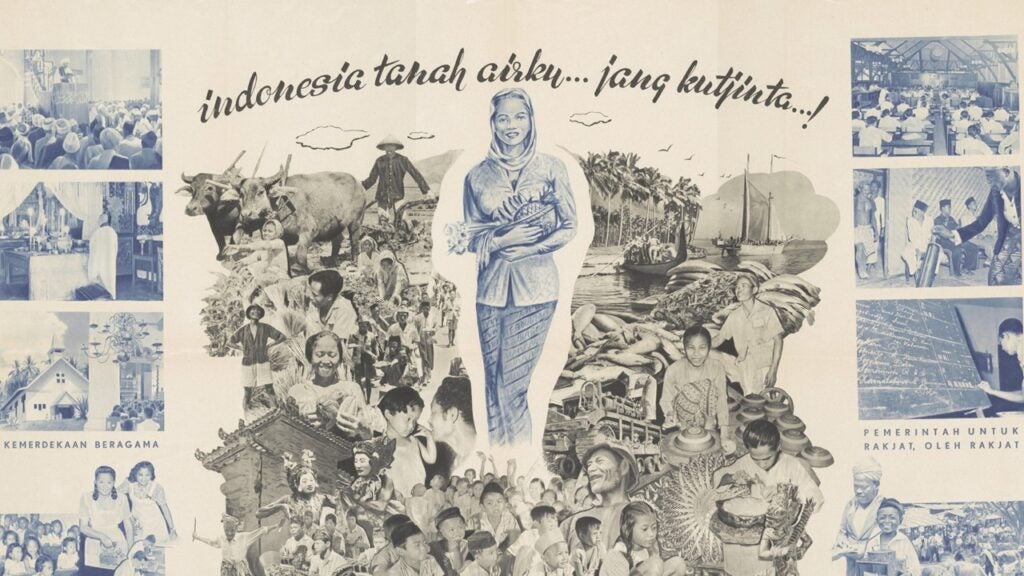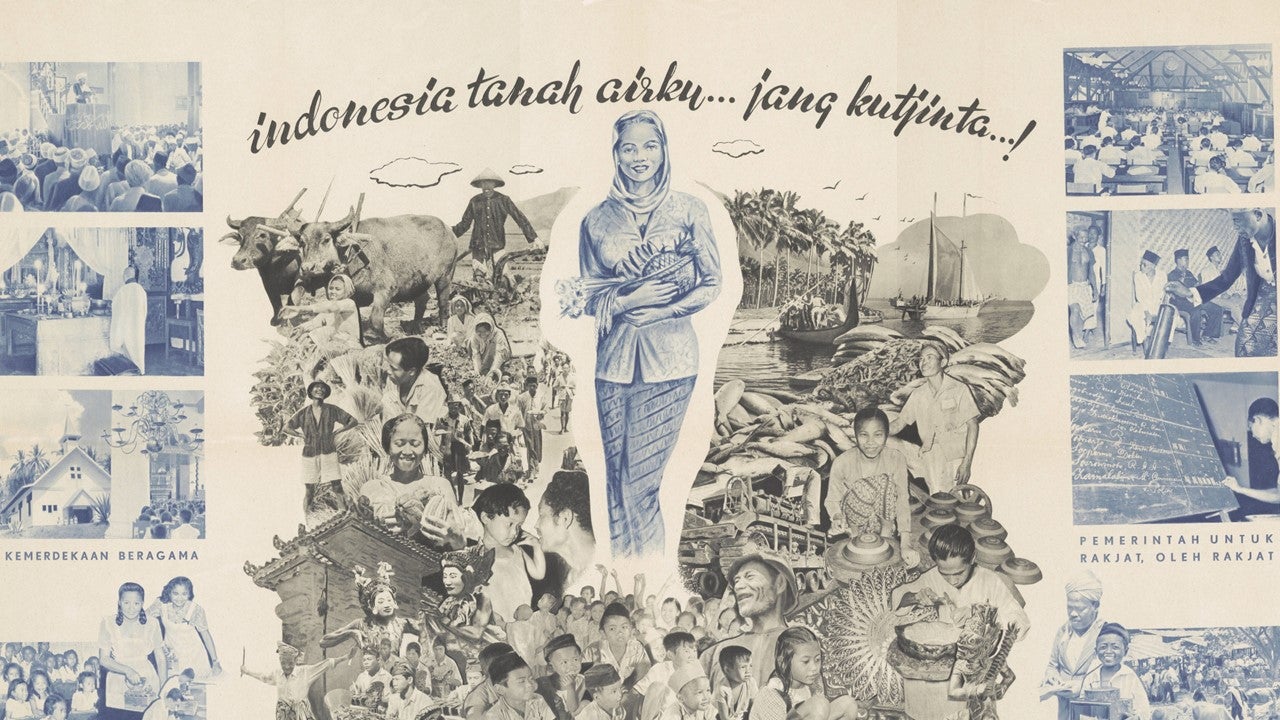Events
Domestic Nationalism: Muslim Women, Health, and Modernity in Indonesia
| Date | : | 25 Feb 2025 |
| Time | : | 16:00 – 17:30 |
| Venue | : | AS8, Level 4, Seminar Room 04-04 |
| Contact Person | : | LIM, Zi Qi |
CHAIRPERSON
Dr Erica M. Larson, Asia Research Institute, National University of Singapore
PROGRAMME
| 16:00 |
WELCOME REMARKS |
| 16:05 |
PRESENTATION |
| 16:30 |
COMMENTARIES |
| 17:00 | QUESTIONS & ANSWERS |
| 17:30 | END |
ABSTRACT
Domestic Nationalism: Muslim Women, Health, and Modernity in Indonesia argues that Muslim women in Java and Sumatra, from the late 1910s to the 1950s, were central to Indonesia’s progress as guardians and promoters of health and piety through gendered activities of care work. While sidelined in the Dutch colonial project of hygienic modernity, women’s labor of social reproduction became increasingly visible during the Japanese Occupation and early years of independence. Women from all walks of life were called upon to fulfill domestic and motherly roles for the production and socialization of laborers, soldiers, and citizens.
The medicalization of cleanliness, intersecting with multiple patriarchal orders, marginalized women’s traditional influence and knowledge. However, leveraging the critical importance of infant care, cleanliness, and nutrition, women pushed against the boundaries imposed on them by the colonial and postcolonial state. Largely absent from government archives, their words and acts are evident in vernacular magazines and visual sources drawn from official outreach, news and lifestyle media, and advertisements. Women writers rearticulated scientific mothering, nationalist maternalism, and Islamic ideals of motherhood to create a public voice through gendered care work.
The framework of Domestic Nationalism: Muslim Women, Health, and Modernity in Indonesia proposes that as the modern Indonesian nation-state took shape capitalizing on the public function of mothering, so did homemaking become a crossroads of national and international approaches to development, blurring nonaligned self-reliance and global capitalist interests.
ABOUT THE SPEAKERS
Chiara Formichi is Professor in the Department of Asian Studies, and the H. Stanley Krusen Professor of World Religions and Director of the Religious Studies Program, at Cornell University. She specializes on Islam in Southeast Asia. Her research and publications focus on the intersection of religion and politics in colonial and postcolonial Southeast Asia, and on the relationship between Islamic studies and Asian studies. She has published two single-authored books, edited five volumes or special issues, and over 20 journal articles and book chapters. Her latest solo-authored book is Islam and Asia: A History (Cambridge, 2020), and her third monograph Domestic Nationalism: Muslim Women, Health, and Modernity in Indonesia is forthcoming in 2025 with Stanford University Press.
Guo-Quan Seng is Assistant Professor of History at National University of Singapore. He is the author of Strangers in the Family: Gender, Patriliny and the Chinese in Colonial Indonesia (Cornell University Press, 2023), and is now working on a second book tentatively titled, A Diaspora of Shopkeepers: Empire, Race and Chinese Commercial Expansion in Southeast Asia (1870-1970s). With a focus on Singapore, Malaysia and Indonesia, it looks at cross-border business network formations and race-relations on the ground in the process of Chinese wholesale and retail trade expansion across the long twentieth century.
Nor Ismah is Postdoctoral Fellow in the Religion and Globalisation Cluster at the Asia Research Institute (ARI), National University of Singapore. She has extensive experience managing projects for universities, think tanks, and non-governmental organizations, including baseline studies, evaluation research for development programs, gender and media training, and curriculum development. Her research focuses on the intersection of gender studies, women’s knowledge production, media, and Islam in the Indonesian context. Her forthcoming Edinburgh University Press book Women Issuing Fatwas: Female Islamic Scholars and Community-Based Authority in Java, Indonesia, is anticipated to make a significant contribution to the field. At ARI, she plans to develop the research project titled “Religious Networks and Gender Dynamics: A Study of Female Islamic Authority in Southeast Asia”, building on her doctoral research.
Taomo Zhou is Associate Professor at the Department of Chinese Studies and Dean’s Chair in the Faculty of Arts and Social Sciences at National University of Singapore. Her book, Migration in the Time of Revolution: China, Indonesia and the Cold War (Cornell University Press, 2019) was named by Foreign Affairs as one of the “Best Books of 2020” and received Honourable Mention for the 2021 Harry J Benda Prize awarded by the Association for Asian Studies. She is currently working on her next book, Made in Shenzhen: A Global History of China’s First Special Economic Zone, which is under advance contract with Stanford University Press. She is also doing research on motherhood during the Cold War.
REGISTRATION
Registration is closed. However, we welcome walk-ins to join us if there are available seats.



